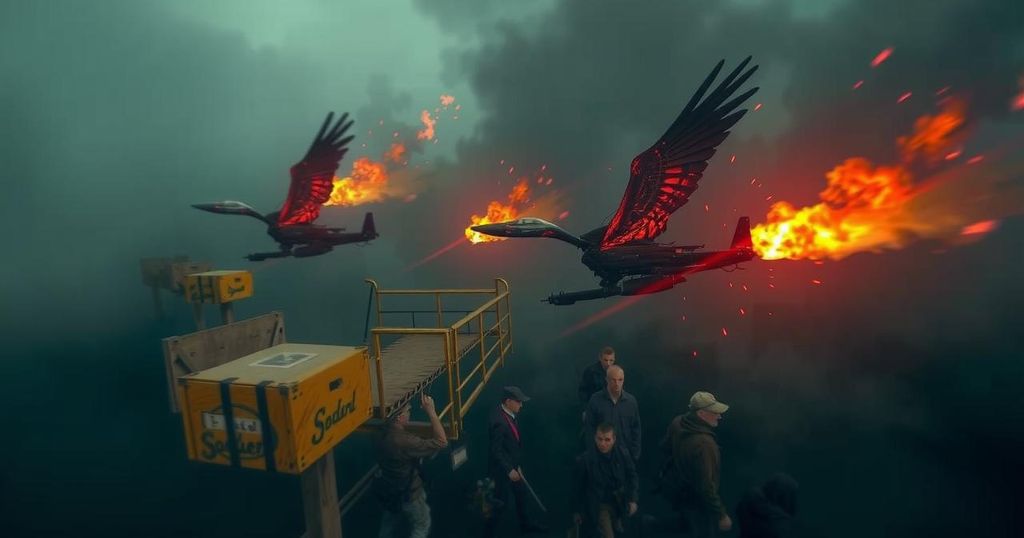On November 18, 2024, Russia vetoed a UN resolution calling for an immediate ceasefire in the ongoing Sudan conflict. The resolution, proposed by Britain and Sierra Leone, aimed to initiate peace talks amid rising violence and humanitarian crises stemming from hostilities between the Sudanese army and the Rapid Support Forces. British officials strongly criticized the veto, highlighting Russia’s role as an obstructionist. The humanitarian toll continues to escalate, necessitating urgent international attention and action.
On November 18, 2024, Russia exercised its veto power at the United Nations Security Council, blocking a proposed resolution aimed at ceasing hostilities in Sudan. The conflict in Sudan, which erupted in April 2023 between the Sudanese army and paramilitary forces, has resulted in significant humanitarian crises. The draft resolution, co-sponsored by Britain and Sierra Leone, sought immediate talks towards a ceasefire and requested member states to refrain from actions that would exacerbate the conflict. British Foreign Secretary David Lammy condemned Russia’s veto as a disgrace and criticized the Russian delegation’s response during the session. He expressed frustration over Russia’s role as an obstructionist in an already divided international arena. In response, Russia’s deputy UN ambassador claimed the resolution reflected post-colonial bias and defended the government’s actions against external criticism. The humanitarian situation in Sudan is dire, with tens of thousands of casualties and over 11 million displaced. The draft resolution called for both the army and the Rapid Support Forces (RSF) to uphold commitments made in 2023 to protect civilians. Despite the significant humanitarian implications, there were doubts about the effectiveness of the resolution even if it had passed. UN officials noted a concerning escalation in violence as both factions appeared to be intent on achieving military victory, further complicating the prospect of peace talks.
The situation in Sudan has escalated into a violent conflict between rival factions since April 2023, instigating a severe humanitarian crisis. The fighting is primarily between the established Sudanese army, led by General Abdel Fattah Al Burhan, and the Rapid Support Forces, commanded by General Mohamed Hamdan Daglo. This conflict has led to widespread displacement and suffering among civilians, prompting international calls for intervention and cessation of hostilities. The United Nations has expressed concern over the escalating violence, particularly as basic human rights are being violated amid the chaos. The paralyzed state of the Security Council, highlighted by the division between Russia and the United States, complicates efforts to achieve a unified response to such conflicts. Recent geopolitical actions, including U.S. support for Ukraine, further illustrate the tensions affecting international relations and engagement in the Sudanese crisis.
In conclusion, Russia’s veto of the ceasefire resolution for Sudan marks a significant impediment to the international community’s efforts to alleviate the severe humanitarian crisis in the region. The ongoing conflict has resulted in catastrophic human costs, demonstrating the urgent need for a coordinated response. However, existing divisions within global powers, particularly within the UN Security Council, hinder effective measures. Calls for both military factions to adhere to their commitments and uphold civilian safety remain critical as the situation develops.
Original Source: www.jordantimes.com







